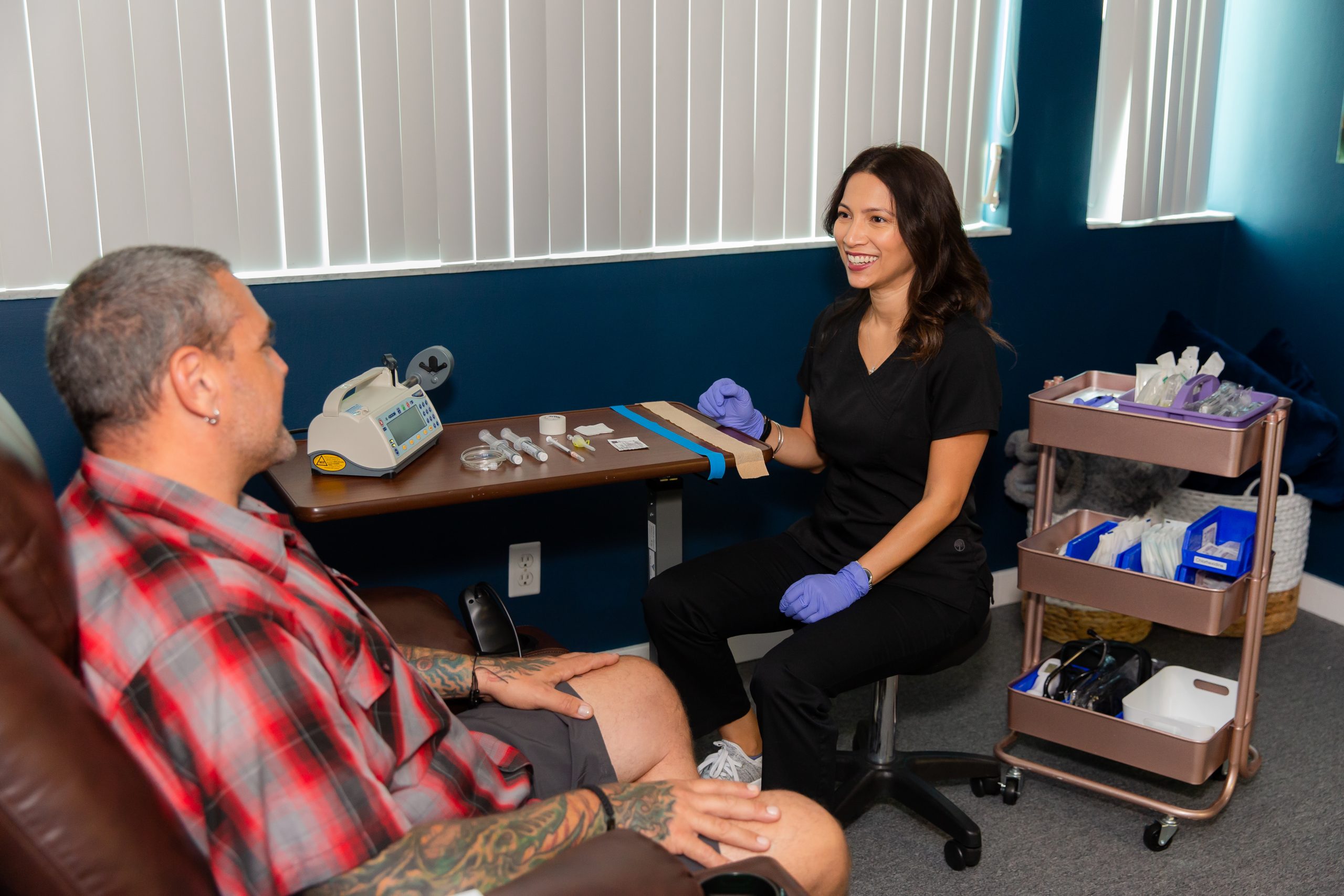KETAMINE THERAPY
A breakthrough option for individuals who haven’t found relief with traditional treatments

Ketamine
If you’ve been struggling with depression, anxiety, PTSD, or other mental health challenges that haven’t improved with traditional medications, ketamine therapy may offer a path forward. At Cornerstone Psychiatric Care, we specialize in evidence-based treatments tailored to your unique needs, helping you regain hope and improve your quality of life.
Ketamine works by producing release of the glutamate neurotransmitter in the brain, allowing new synapses to form within 24 hours. Ketamine produces a rapid antidepressant effect, bypassing the traditional monoamine (i.e. serotonin) system and directly activating glutamatergic pathways. This is very different from traditional antidepressants, which can take weeks to months to stimulate synapse formation. Ketamine can yield an immediate effect!
Ketamine is a powerful tool for depression and anxiety; it can be helpful when other treatments have failed. It has given life-changing relief and a renewed sense of hope to many who felt they may never find that light at the end of the tunnel. Ketamine is ideally suited for use with:
Severe depression, both unipolar and bipolar
Depression that has not responded to conventional treatments
Suicidal thoughts or thoughts of not wanting to live anymore
Post Traumatic Stress Disorder (PTSD)
Obsessive Compulsive Disorder (OCD)
Certain cases of severe, treatment resistant anxiety
To that end, ketamine can be a highly effective tool for some patients when combined with proper medication management and/or therapy. When recommending ketamine infusion therapy as a treatment option, Cornerstone Psychiatric Care will treat our patients as a whole person, taking into account their past or ongoing experience with therapy, other medication treatments, as well as non-pharmaceutical treatments.
Low doses of ketamine are carefully administered by a licensed medical provider in a series of slow intravenous (IV) infusions during an induction period of 6 treatments, given in a timespan of 2-3 weeks. Each treatment lasts approximately 60-90 min. Cornerstone Psychiatric Care provides a private, safe, and comfortable environment for your treatment. We recommend you bring headphones, music and an eye mask; these can also be provided to you during your treatment. We recommend that you do not drive or operate heavy or dangerous machinery until the day after treatment.
For 70-80% of patients treated, ketamine provides a break from debilitating symptoms of depression within 24 hours of a ketamine treatment, but it is not usually a permanent cure. Breaks from depression last different lengths of time for each individual and can range from weeks to months at a time. Booster treatments can be given to extend the symptom relief.
To maximize your treatment results, follow through on other methods of treatment for your depression during the breaks ketamine treatments provide. Because of the repairs made to the resiliency systems in your brain, psychotherapy, or talk-therapy, is often more effective at this point.
As a treatment for depression, ketamine has a few drug effects. These can include positive drug effects such as a dream-like feeling psychiatrists call dissociation. Negative drug effects (side effects) may include time-limited sedation, blurred or double vision, dizziness, nausea, vomiting and short anxiety reactions after receiving the infusion. Because the drug is cleared from your body rather quickly, side effects usually resolve before you are discharged.
Ketamine has been FDA-approved since 1970, however Cornerstone Psychiatric Care uses it as an “off-label” treatment for psychiatric disorders. “Off-label” use means that it is administered as a type of treatment that the FDA did not originally approve. The FDA approves medications only for a certain number of uses, but most medications eventually develop off-label uses due to the clinical experience that accumulates over time.
Ketamine for mental health is administered at slow and low non-anesthetic doses.
The low doses of ketamine used in infusion therapy, administered in a medically upervised setting, eliminate potential for addiction or abuse. For the duration of a ketamine infusion, blood pressure and heart rate may increase – therefore patients with uncontrolled blood pressure, unstable heart disease, and/or untreated thyroid disease should not use ketamine. People who are actively engaged in substance use, people who are experiencing psychotic symptoms, and/or patients who are currently experiencing the manic phase of bipolar disease also should not use ketamine treatments. Ketamine is contraindicated during pregnancy. Patients undergoing treatments are monitored closely to ensure safety during the acute course. Long-term safety studies of repeated ketamine infusions have not been published.
Ketamine is not FDA approved for treating depression; therefore, it is considered “off-label use” and not covered by insurance. However, Cornerstone Psychiatric Care has reduced the cost of ketamine infusion therapy to $250 and applies insurance coverage for the cost of your office visit, unrelated to the cost of the ketamine.
To learn if you’re a good candidate for ketamine infusion therapy, call Cornerstone Psychiatric Care at (561) 531-7818 or email us at info@cp.care.
If you have further questions about ketamine, you can find key literature at https://www.askp.org/scientific-literature/

 8895 N. Military Trail., Suite 301 & 306 E, Palm Beach Gardens, FL 33410
8895 N. Military Trail., Suite 301 & 306 E, Palm Beach Gardens, FL 33410 (844) 912 1511
(844) 912 1511